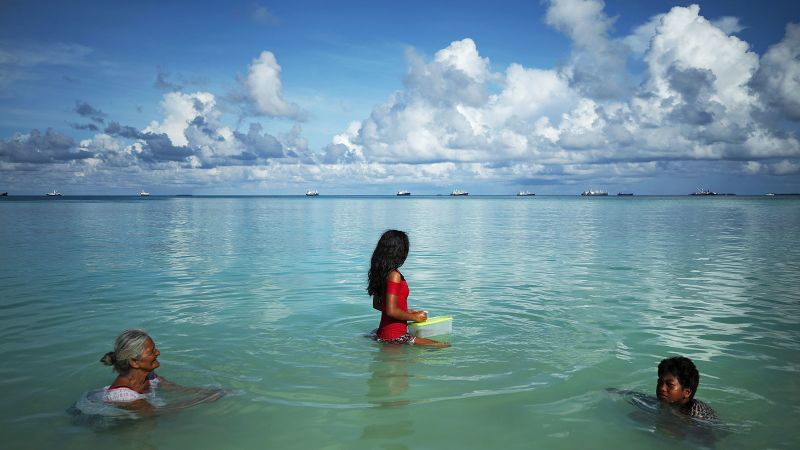
Sydney, Australia – In a groundbreaking move, more than a third of Tuvalu’s population has applied to relocate to Australia. This development comes as part of a landmark visa scheme aimed at providing refuge from the existential threat posed by rising sea levels.
Immediate Impact
The island nation of Tuvalu, situated approximately halfway between Hawaii and Australia, is home to about 10,000 residents. These inhabitants are spread across a series of small islets and atolls in the South Pacific. With no part of its territory rising above six meters, Tuvalu is among the most vulnerable places globally to the effects of climate change-induced sea level rise.
Key Details Emerge
On June 16, Australia initiated a unique visa program designed to assist those affected by climate change. This scheme allows for 280 visa recipients to be selected through a random ballot, with the process spanning from July to January 2026. Successful applicants will receive permanent residency in Australia, granting them the right to work and access public services like healthcare and education.
More than 4,000 Tuvaluans have applied for the visa, according to official figures.
Industry Response
Australian Foreign Minister Penny Wong emphasized the program’s significance, stating, “The opening of the Falepili Mobility Pathway delivers on our shared vision for mobility with dignity, by providing Tuvaluans the opportunity to live, study, and work in Australia as climate impacts worsen.”
CNN has reached out to the Tuvalu government for further comment.
By the Numbers
- Population of Tuvalu: Approximately 10,000
- Visa Applications Received: Over 4,000
- Visa Slots Available: 280
- Application Period: June 16 – July 2026
Background Context
According to Tuvalu’s Prime Minister Feleti Teo, projections indicate that by 2050, more than half of Tuvalu will face regular inundation from tidal surges. By the year 2100, 90% of the nation could be submerged regularly. The capital, Fongafale, is particularly vulnerable, with some areas being a mere 20 meters wide.
“Internal relocation in Tuvalu is not an option, we are totally flat,” Prime Minister Teo explained at the United Nations Oceans Conference in Nice, France. “There is no option to move inland or move to higher ground, because there is no higher ground.”
What Comes Next
The visa scheme is part of a broader agreement signed between Australia and Tuvalu in 2023. This pact commits Australia to defending Tuvalu both militarily and against the threat of rising seas. Australia has also pledged to recognize Tuvalu’s sovereignty, even if the nation becomes uninhabitable.
In 2022, Tuvalu announced plans to become the first nation to transition entirely online, preserving its history and culture digitally. Australia supports this initiative, recognizing Tuvalu’s “digital sovereignty” as a means to maintain its identity and state functions.
Regional Implications
Australia’s proactive stance contrasts sharply with the policies of the previous U.S. administration, which imposed stricter climate and immigration regulations. Tuvalu is among 36 countries that had been warned by the U.S. to improve traveler vetting or face travel restrictions.
Australia’s Prime Minister Anthony Albanese has reiterated his country’s commitment to a “peaceful, stable, prosperous, and unified region,” highlighting the trust Pacific partners can place in Australia.
The situation remains fluid, with ongoing international discussions about climate change mitigation and adaptation strategies. As Tuvalu navigates these unprecedented challenges, the world watches closely, considering the broader implications for other vulnerable island nations.







